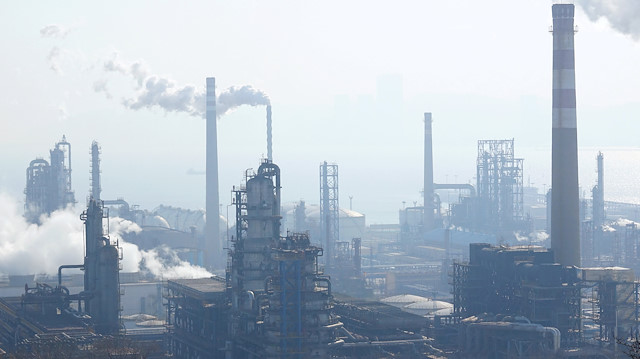
UNDERCUTTING MARKET
The U.S. sanctions imposed in November banned purchases of Iranian petrochemical products which include "any aromatic, olefin, and synthesis gas, and any of their derivatives, including ethylene, propylene, butadiene, benzene, toluene, xylene, ammonia, methanol, and urea".
However a separate document by the Treasury's enforcement division OFAC says "in keeping with the EIA's (U.S. Energy Information Administration) standard definition, petroleum products do not include natural gas, liquefied natural gas, biofuels, methanol, and other non-petroleum fuels".
This could suggest a discrepancy in the types of petrochemical products that were banned, such as methanol and fertilisers, the industry sources said.
Behzad Mohammadi, Iran's deputy petroleum minister for petrochemical affairs, said in May that the wide diversity of petrochemical products and high international demand for them made the industry unsanctionable.
However, Aaron Hutman, Washington-based counsel with law firm Pillsbury, which advises companies globally on sanctions compliance, said firms could still be leaving themselves open to potential penalties by dealing in Iranian petrochemicals.
"Companies should not perceive discrepancies or loopholes in U.S. energy-related secondary sanctions," he added. "The goal of U.S. officials appears to have been a comprehensive warning, and non-U.S. companies or banks would be taking a risk in any attempt to parse words within the petrochemical universe."
Given the uncertainties over sanctions enforcement, Iranian traders said they had been cautious in conducting business.
Two Iranian traders said they had struck petrochemicals deals using front companies in Turkey, in Dubai in the United Arab Emirates and also other neighbouring countries, declining to disclose further details.
One of the traders said cargoes were concluded either in cash using non-U.S. dollar currencies or by barter, to avoid falling foul of separate U.S. financial sanctions that bar Iranian companies from the global dollar system.
The traders said they used euros and UAE dirhams in transactions and that buyers in Turkey and the UAE were more likely to be middle men who then redistributed cargoes.
A senior Iranian government official, who declined to be named due to the sensitivity of the matter, said shipments through Turkey had been stepped up since November, with the port of Izmir a favoured gateway.
A second senior official, who has been involved in meetings with buyers, said there was huge interest in Iranian petrochemical products because of their quality and price.
"Pressure by any country cannot stop Iran's exports," he added.














